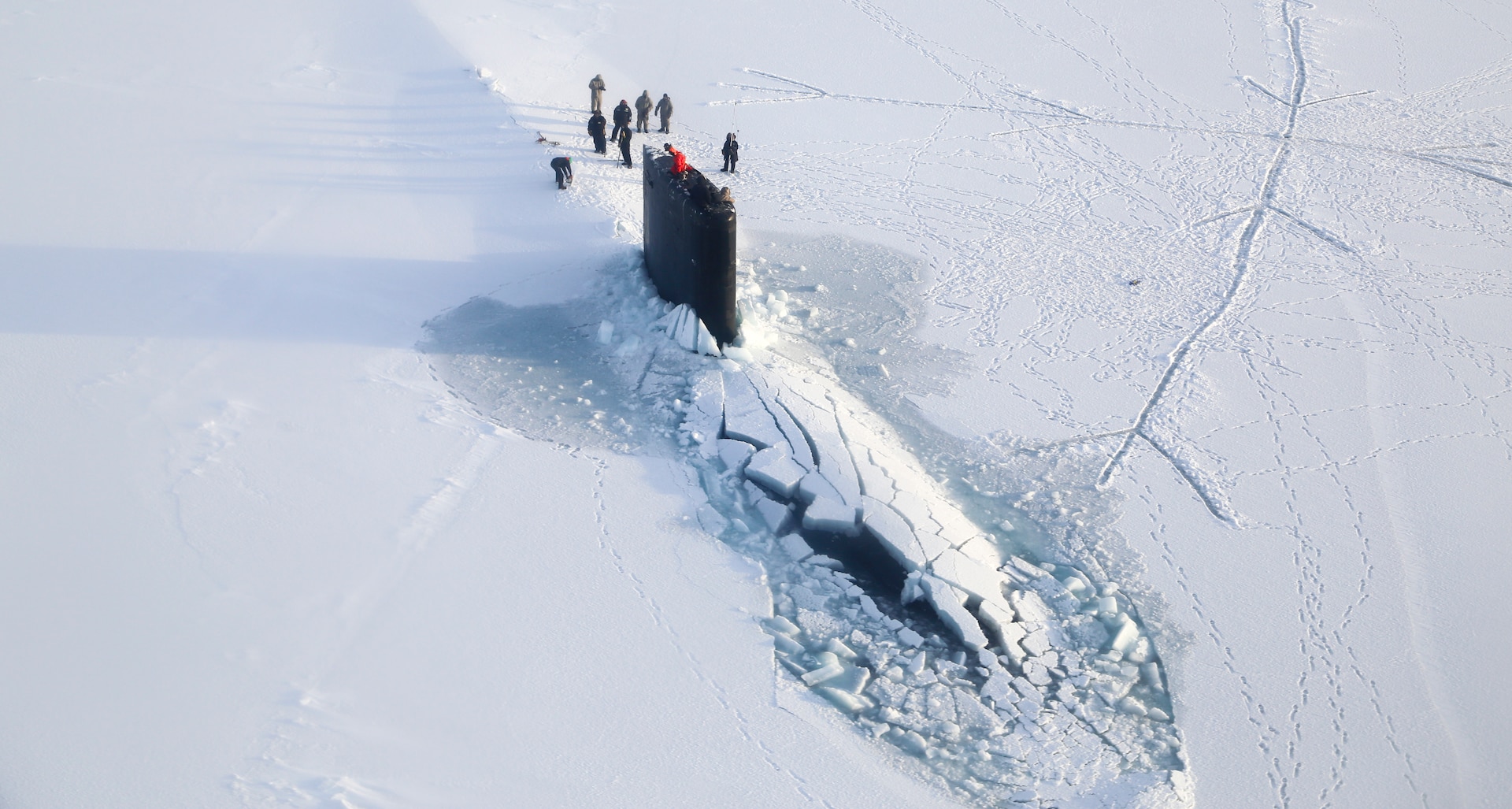NORTHCOM concludes special mission in the Arctic
“It's really both competitors we see operating up there, routinely,” commander says. Last month, just days after four Russian military aircraft flew in Alaska Air Defense Identification Zone, teams of U.S. special operations forces conducted a mission on St. Lawrence island in the Bering Sea, just 50 miles away from continental Russia, as well as on Shemya Island, which sits in Alaska’s remote Aleutian island chain. The objective of what NORTHCOM is calling Operation Polar Dagger was to extend U.S capabilities to monitor the air and sea domain in the Arctic and showcase how well special operator air, land, and sea teams work together in harsh, long-distance environments like the Bering Sea.
Last month, just days after four Russian military aircraft flew in Alaska Air Defense Identification Zone, teams of U.S. special operations forces conducted a mission on St. Lawrence island in the Bering Sea, just 50 miles away from continental Russia, as well as on Shemya Island, which sits in Alaska’s remote Aleutian island chain. The objective of what NORTHCOM is calling Operation Polar Dagger was to extend U.S capabilities to monitor the air and sea domain in the Arctic and showcase how well special operator air, land, and sea teams work together in harsh, long-distance environments like the Bering Sea. 
![DVIDS - Images - U.S. Air Force, Army, Norwegian SOF conducts RAPIDS training in Norway [Image 8 of 9]](https://d1ldvf68ux039x.cloudfront.net/thumbs/photos/2003/6134703/1000w_q95.jpg) This was the second iteration of Operation Polar Dagger and this year’s version of the operation was larger than last year’s, bringing in the John P. Murtha LPD 26 transport ship and an AC-130 plane in order to build out faster intelligence, communications and operations between the air, sea and ground. One of the chief goals of the operation was to show improved “domain awareness,” said Tucker, “to understand what's being seen in the air is effectively communicated to the forces on the ground. And then the opposite of that, that the forces on the ground are able to communicate their perception of domain awareness to the forces in the air … The second aspect would be our ability to deliver effects kinetic or nonkinetic, from air to ground, in support of the ground forces, or ultimately in supporting the mission of the air components.”
This was the second iteration of Operation Polar Dagger and this year’s version of the operation was larger than last year’s, bringing in the John P. Murtha LPD 26 transport ship and an AC-130 plane in order to build out faster intelligence, communications and operations between the air, sea and ground. One of the chief goals of the operation was to show improved “domain awareness,” said Tucker, “to understand what's being seen in the air is effectively communicated to the forces on the ground. And then the opposite of that, that the forces on the ground are able to communicate their perception of domain awareness to the forces in the air … The second aspect would be our ability to deliver effects kinetic or nonkinetic, from air to ground, in support of the ground forces, or ultimately in supporting the mission of the air components.”
Those competitors, Russia and China, have been increasing their own activity in the Arctic. That increased activity prompted the Pentagon to establish a new Arctic strategy and global resilience office in 2022, following the publication of a DOD Arctic Strategy in 2019.
“In different ways, Russia and China are challenging the rules-based order in the Arctic. Russia regulates maritime operations in the (Northern Sea Route), contrary to international law, and has reportedly threatened to use force against vessels that fail to abide by Russian regulations … China is attempting to gain a role in the Arctic in ways that may undermine international rules and norms, and there is a risk that its predatory economic behavior globally may be repeated in the Arctic,” that strategy reads.
Russia and China have been coordinating more in the Arctic as well, said Tucker. “Both of our strategic competitors are increasing their activity. Obviously, one strategic competitor maintains a tremendous amount of shoreline up there and has some very direct economic interest. Another strategic competitor recently declared themselves a near Arctic nation, and they are working in conjunction with Russia to better understand the environment, the economic opportunities, and other positions of advantage they might be able to seize by becoming more active in the Arctic. I would say it's really both competitors we see operating up there, routinely.”





No comments:
Post a Comment
Note: Only a member of this blog may post a comment.